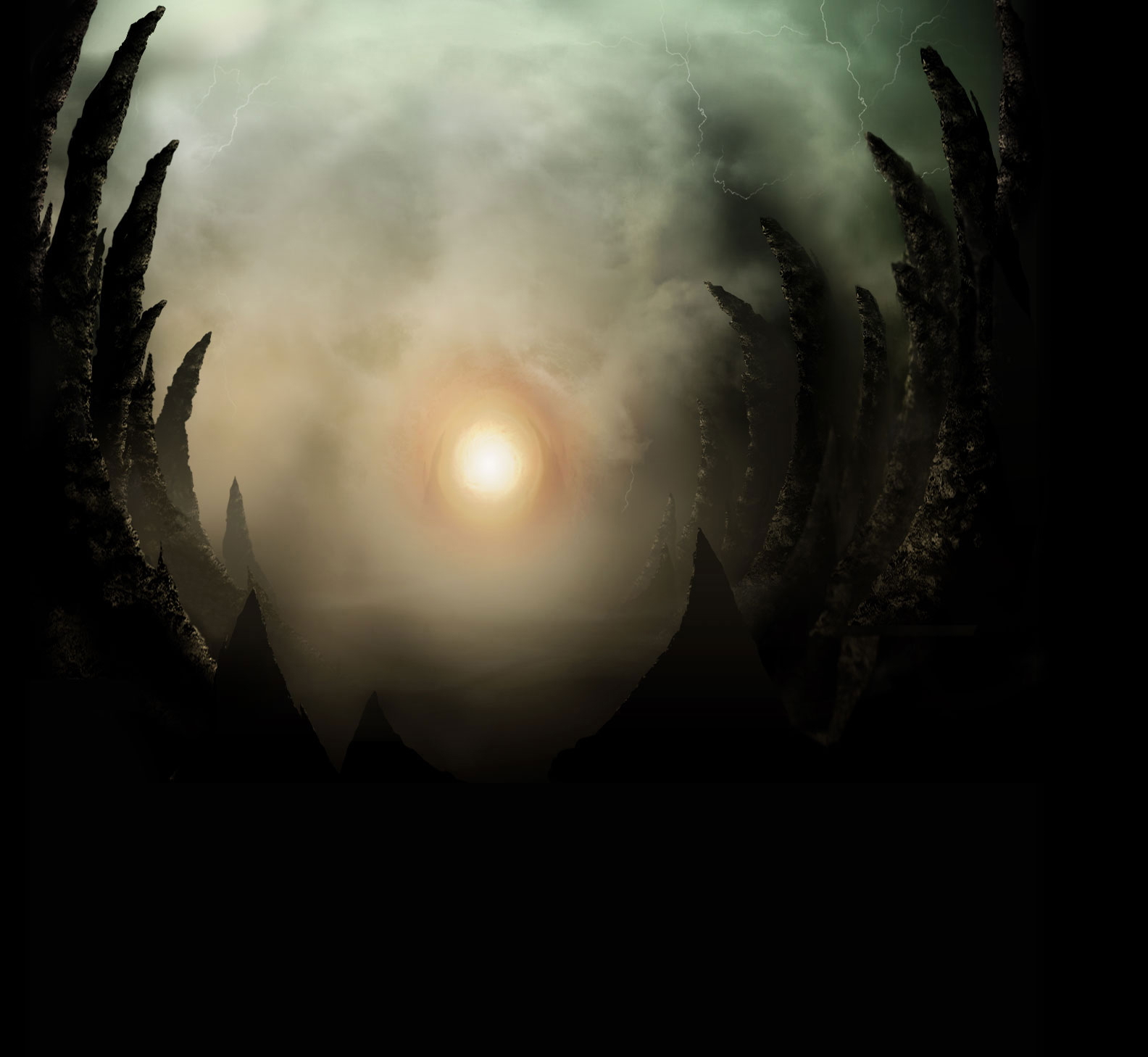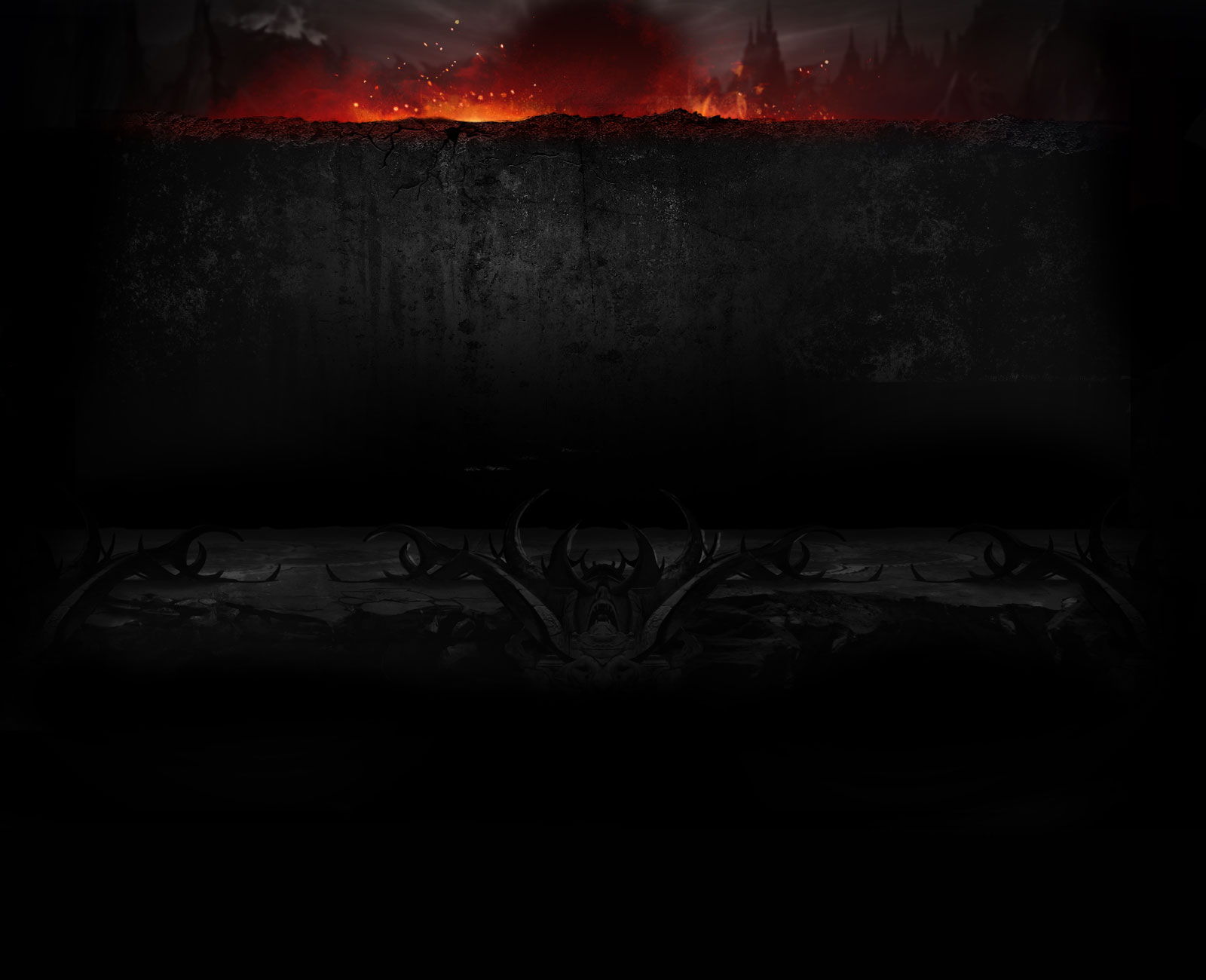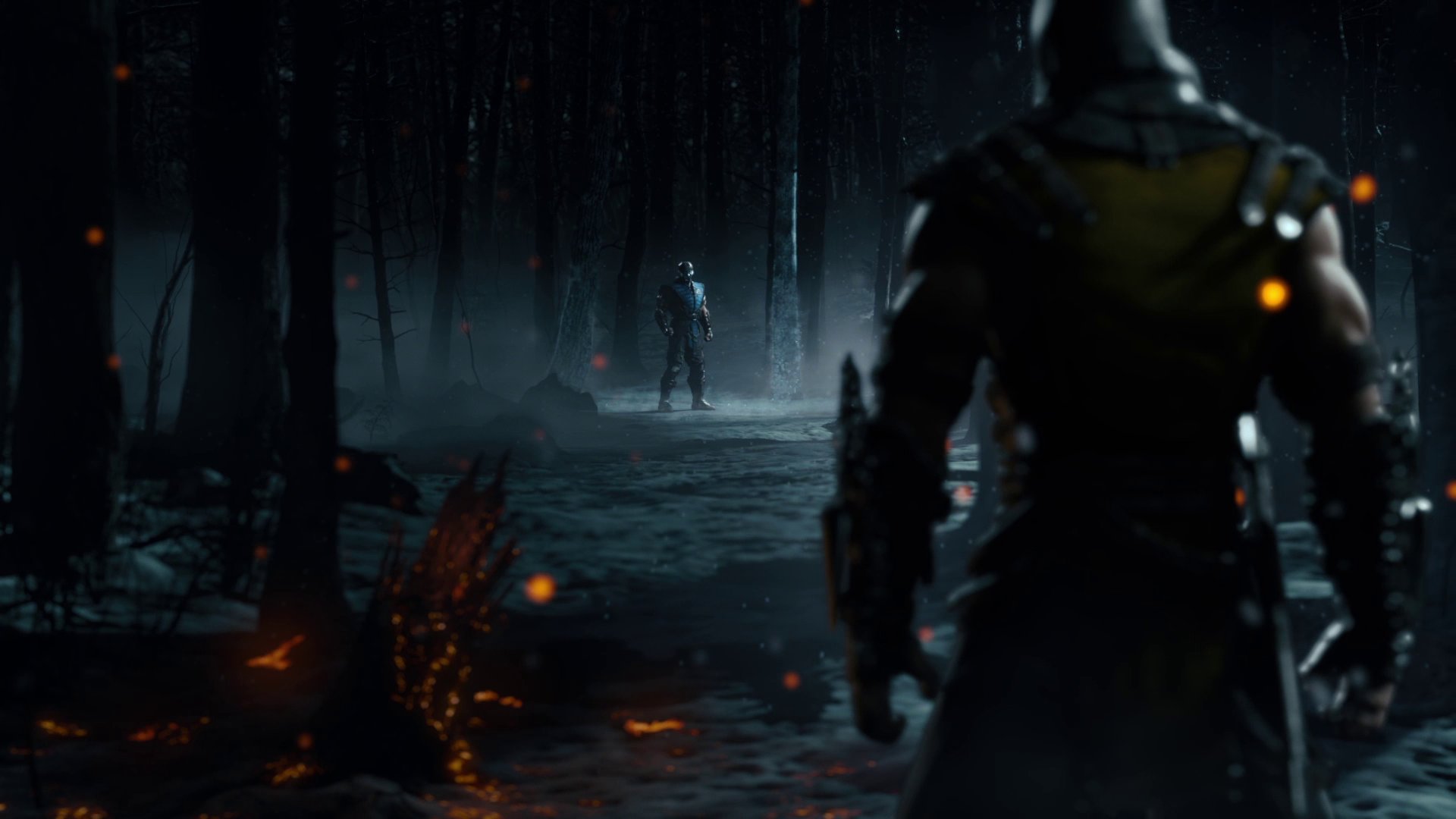ogrimtitan
Mortal
Foreword: Yes, this is super long. But it's as long as it needs to be. Thanks for understanding. TL;DR version at bottom.
This post contains thoughts and perspectives on single-player content that I’ve been harboring for a while, but that I was recently inspired to draft into a letter after Derek Kirtzic (who I understand is responsible for a lot of MK11’s single-player content) said in a recent interview that the NRS team really does pay attention to what the fans and players say online and in forums like this one. This post is a bit long, but I’ve tried to keep it organized and to the point so more people can and will read it. So here goes.
I’m a diehard mark for NRS games. Have been since about 1992, though I was too young to remember the exact date. I’m also a lover of both single-player and multi-player content. I played at least several dozen hours of Injustice 2’s single-player content in addition to playing it online for over a year. I’ve even partially kept up with MK Mobile since its release, particularly when there hasn’t been an active scene to satisfy my MK content craving. I really do eat this stuff up. But I’m sad to say that the current direction of MK’s content design, specifically the exponential loot grind, is damaging both my enthusiasm for the game and my faith in the studio’s design philosophy.
Now I’m by no means the first person to complain that MK11 is looking too grind-y, but here’s where my critique’s going to take a slightly different approach. I’m not going to say grinding isn’t fun. I’m also not going to say it is fun. That’s really a player preference, and I fall somewhere in the middle. Same with the other popular debates, such as whether grind-y content belongs in a fighting game at all, whether players should have to pay for cosmetics or disc-locked content, the issue of loot boxes in generall, etc. All up to the individual player, in my view.
My critique is with the philosophy around which MK11’s single-player content has been designed. It’s glaringly obvious that the unlockable content package was designed to extend the game’s lifespan and replayability, as well as its general appeal to players who may be less interested in the competitive scene. And you know what? I think that’s great. Who doesn’t want MK11 to have a longer lifespan, feel more replayable, draw a larger player base, make more money, etc.? But it seems obvious to me that the strategy for achieving these valuable goals is based in a problematic design orientation, and I believe it is this orientation that underpins so many of the criticisms about MK11’s apparently enormous grind.
To put it simply, the development strategy seems to have been to create a framework for the game (i.e., what the single-player content will look like), and then decide on (or perhaps receive from higher executive offices) the performance targets for the game, such as how many hours the average player should play over the game’s lifespan, how often the average player should turn on the game, statistical projections of how much grind it will take to push the average player to spend additional real money on the game per interval of play time, and just generally how much time and money the game should earn from the player base. The existing framework then gets padded out with time sinks until the targets are most likely to be achieved.
Now whether it extends the game’s life or not, this is a strategy most players are unlikely to find palatable, so it will never actually be talked about in these terms. But you can see the truth of it underlying the complaints and concerns being expressed. To put it bluntly, players are objecting to things that are simply and somewhat objectively not fun. Repetitive and stressful tasks with ambiguous payoff, item RNG, item duplication, meaningless titles and icons, gear and slot configuration, leveling something up only to have it reset an arbitrary numerical counter and start again (i.e., nested leveling)… none of that is really fun. Certainly not after the first couple of repetitions. It never generates fun because it is not meant to. It is meant to generate participation and (on average, over time) dollars as people pay to reduce their participation. It is literally a model built on frustrating players slowly enough that they don’t quit, but quickly enough that they’ll pay money to spend less time playing your game. And if they don’t spend that money, then at least they’re still indirectly increasing revenue by propping up the player base with how long it takes them to get the play experience they actually want. And that’s unsavory business strategy, to say the least.
But my real gripe is that it doesn’t have to be like that for Mortal Kombat. We players love MK. It’s a beloved, world-renowned franchise, and this is a much-anticipated entry into its canon. We want to play this game, and we want to want to play it. And if a game is genuinely fun and beloved and deep and rich and well-constructed, players will play it no matter what. How many times have you played out all the content on a game you love, only to go replay it because you just haven’t had enough yet? And when you’ve replayed it as much as you can stand, how many times have you gone back and crafted artificial scenarios, or restrictions, or goals, or other elements for yourself just so you can spend more time with the game you love? Or gone and chosen to spend actual money to purchase something you don’t necessarily need to play the game, but that will extend your time and enjoyment in that world you love by just a little bit longer? I know I’ve spent thousands of hours of my life (and thousands of my dollars) doing just such things.
And that’s what I wish I saw more of in the modern generation of Mortal Kombat: a design philosophy that says “we are confident that we can build both single- and multi-player content that is so much goddamn fun that our players WILL stick with our game for months and years to come, and WILL invest their time and money into it in a way that meets our financial targets, WITHOUT the game being based around carrot-and-stick motivations.”
And that doesn’t even mean carrot-and-stick mechanics can’t be included in the game at all but, when they are the foundation, then the only reliable way to prop up the game becomes making the stick longer and longer and putting more and more cheap-to-produce quasi-carrots in between the player and the carrot they’re actually after. It’s precisely that design philosophy that implicitly asks me as the player to swallow the idea that it’s somehow “fun” to open fifty or a hundred chests containing meaningless pseudo-currency on the way to wagering for a CHANCE to make my favorite character look how I actually want them to look. That’s not fun. It’s gambling. It’s the design philosophy behind slot machines, which operate not on enjoyment but on human beings’ addictive tendencies. It’s never been fun, and it will never be fun, so please stop asking me to entertain the idea that THIS time it might be fun.
And the alternative is so much better! Have confidence in the franchise that so many millions of players have said they have confidence in for over two decades! Build something amazing into this powerful franchise you control, that so many of us would kill to have a hand in! Earn our investment of our hearts and hours and dollars, instead of making us earn the game we already adore. We’ll both be better off in the former exchange than the latter. I promise.
TL;DR: Mortal Kombat does not need to force players into the RNG-based bait-and-switch loot grind so many other games have resorted to in pursuit of performance targets, and doing so devalues the franchise and sours its relationship with its fanbase. Mortal Kombat is one of the most beloved properties in gaming history, and MK11 itself is a game with top-quality performance potential. Rather than engaging in the carrot-and-stick grind of RNG-padded content that is so popular in other franchises today, NRS would do better by both its investors and its fans by taking a bottom-up strategy of generating player investment via quality gameplay and satisfying content experiences, letting franchise reputation, game quality, and fan loyalty do the real work.
This post contains thoughts and perspectives on single-player content that I’ve been harboring for a while, but that I was recently inspired to draft into a letter after Derek Kirtzic (who I understand is responsible for a lot of MK11’s single-player content) said in a recent interview that the NRS team really does pay attention to what the fans and players say online and in forums like this one. This post is a bit long, but I’ve tried to keep it organized and to the point so more people can and will read it. So here goes.
I’m a diehard mark for NRS games. Have been since about 1992, though I was too young to remember the exact date. I’m also a lover of both single-player and multi-player content. I played at least several dozen hours of Injustice 2’s single-player content in addition to playing it online for over a year. I’ve even partially kept up with MK Mobile since its release, particularly when there hasn’t been an active scene to satisfy my MK content craving. I really do eat this stuff up. But I’m sad to say that the current direction of MK’s content design, specifically the exponential loot grind, is damaging both my enthusiasm for the game and my faith in the studio’s design philosophy.
Now I’m by no means the first person to complain that MK11 is looking too grind-y, but here’s where my critique’s going to take a slightly different approach. I’m not going to say grinding isn’t fun. I’m also not going to say it is fun. That’s really a player preference, and I fall somewhere in the middle. Same with the other popular debates, such as whether grind-y content belongs in a fighting game at all, whether players should have to pay for cosmetics or disc-locked content, the issue of loot boxes in generall, etc. All up to the individual player, in my view.
My critique is with the philosophy around which MK11’s single-player content has been designed. It’s glaringly obvious that the unlockable content package was designed to extend the game’s lifespan and replayability, as well as its general appeal to players who may be less interested in the competitive scene. And you know what? I think that’s great. Who doesn’t want MK11 to have a longer lifespan, feel more replayable, draw a larger player base, make more money, etc.? But it seems obvious to me that the strategy for achieving these valuable goals is based in a problematic design orientation, and I believe it is this orientation that underpins so many of the criticisms about MK11’s apparently enormous grind.
To put it simply, the development strategy seems to have been to create a framework for the game (i.e., what the single-player content will look like), and then decide on (or perhaps receive from higher executive offices) the performance targets for the game, such as how many hours the average player should play over the game’s lifespan, how often the average player should turn on the game, statistical projections of how much grind it will take to push the average player to spend additional real money on the game per interval of play time, and just generally how much time and money the game should earn from the player base. The existing framework then gets padded out with time sinks until the targets are most likely to be achieved.
Now whether it extends the game’s life or not, this is a strategy most players are unlikely to find palatable, so it will never actually be talked about in these terms. But you can see the truth of it underlying the complaints and concerns being expressed. To put it bluntly, players are objecting to things that are simply and somewhat objectively not fun. Repetitive and stressful tasks with ambiguous payoff, item RNG, item duplication, meaningless titles and icons, gear and slot configuration, leveling something up only to have it reset an arbitrary numerical counter and start again (i.e., nested leveling)… none of that is really fun. Certainly not after the first couple of repetitions. It never generates fun because it is not meant to. It is meant to generate participation and (on average, over time) dollars as people pay to reduce their participation. It is literally a model built on frustrating players slowly enough that they don’t quit, but quickly enough that they’ll pay money to spend less time playing your game. And if they don’t spend that money, then at least they’re still indirectly increasing revenue by propping up the player base with how long it takes them to get the play experience they actually want. And that’s unsavory business strategy, to say the least.
But my real gripe is that it doesn’t have to be like that for Mortal Kombat. We players love MK. It’s a beloved, world-renowned franchise, and this is a much-anticipated entry into its canon. We want to play this game, and we want to want to play it. And if a game is genuinely fun and beloved and deep and rich and well-constructed, players will play it no matter what. How many times have you played out all the content on a game you love, only to go replay it because you just haven’t had enough yet? And when you’ve replayed it as much as you can stand, how many times have you gone back and crafted artificial scenarios, or restrictions, or goals, or other elements for yourself just so you can spend more time with the game you love? Or gone and chosen to spend actual money to purchase something you don’t necessarily need to play the game, but that will extend your time and enjoyment in that world you love by just a little bit longer? I know I’ve spent thousands of hours of my life (and thousands of my dollars) doing just such things.
And that’s what I wish I saw more of in the modern generation of Mortal Kombat: a design philosophy that says “we are confident that we can build both single- and multi-player content that is so much goddamn fun that our players WILL stick with our game for months and years to come, and WILL invest their time and money into it in a way that meets our financial targets, WITHOUT the game being based around carrot-and-stick motivations.”
And that doesn’t even mean carrot-and-stick mechanics can’t be included in the game at all but, when they are the foundation, then the only reliable way to prop up the game becomes making the stick longer and longer and putting more and more cheap-to-produce quasi-carrots in between the player and the carrot they’re actually after. It’s precisely that design philosophy that implicitly asks me as the player to swallow the idea that it’s somehow “fun” to open fifty or a hundred chests containing meaningless pseudo-currency on the way to wagering for a CHANCE to make my favorite character look how I actually want them to look. That’s not fun. It’s gambling. It’s the design philosophy behind slot machines, which operate not on enjoyment but on human beings’ addictive tendencies. It’s never been fun, and it will never be fun, so please stop asking me to entertain the idea that THIS time it might be fun.
And the alternative is so much better! Have confidence in the franchise that so many millions of players have said they have confidence in for over two decades! Build something amazing into this powerful franchise you control, that so many of us would kill to have a hand in! Earn our investment of our hearts and hours and dollars, instead of making us earn the game we already adore. We’ll both be better off in the former exchange than the latter. I promise.
TL;DR: Mortal Kombat does not need to force players into the RNG-based bait-and-switch loot grind so many other games have resorted to in pursuit of performance targets, and doing so devalues the franchise and sours its relationship with its fanbase. Mortal Kombat is one of the most beloved properties in gaming history, and MK11 itself is a game with top-quality performance potential. Rather than engaging in the carrot-and-stick grind of RNG-padded content that is so popular in other franchises today, NRS would do better by both its investors and its fans by taking a bottom-up strategy of generating player investment via quality gameplay and satisfying content experiences, letting franchise reputation, game quality, and fan loyalty do the real work.
Last edited:






